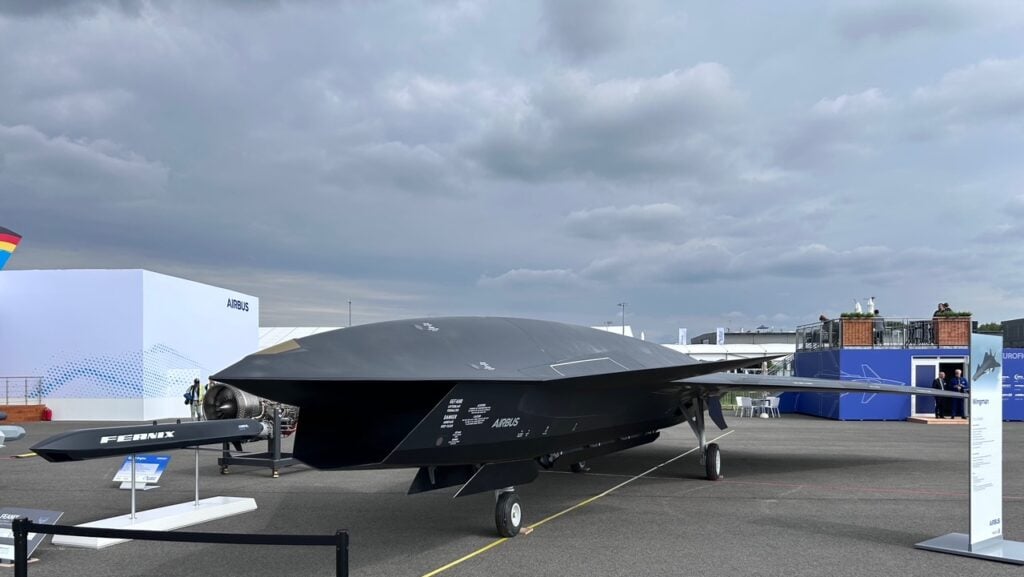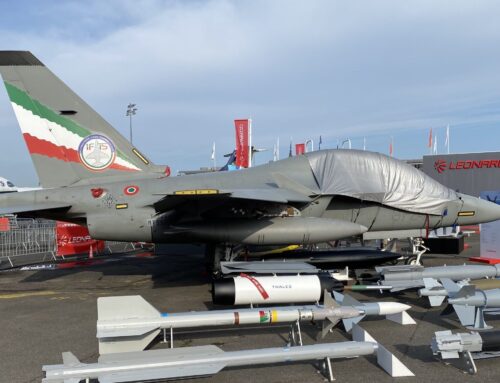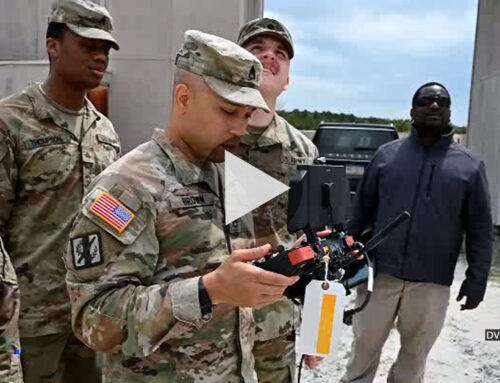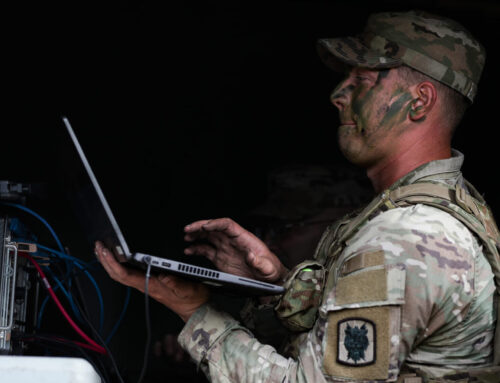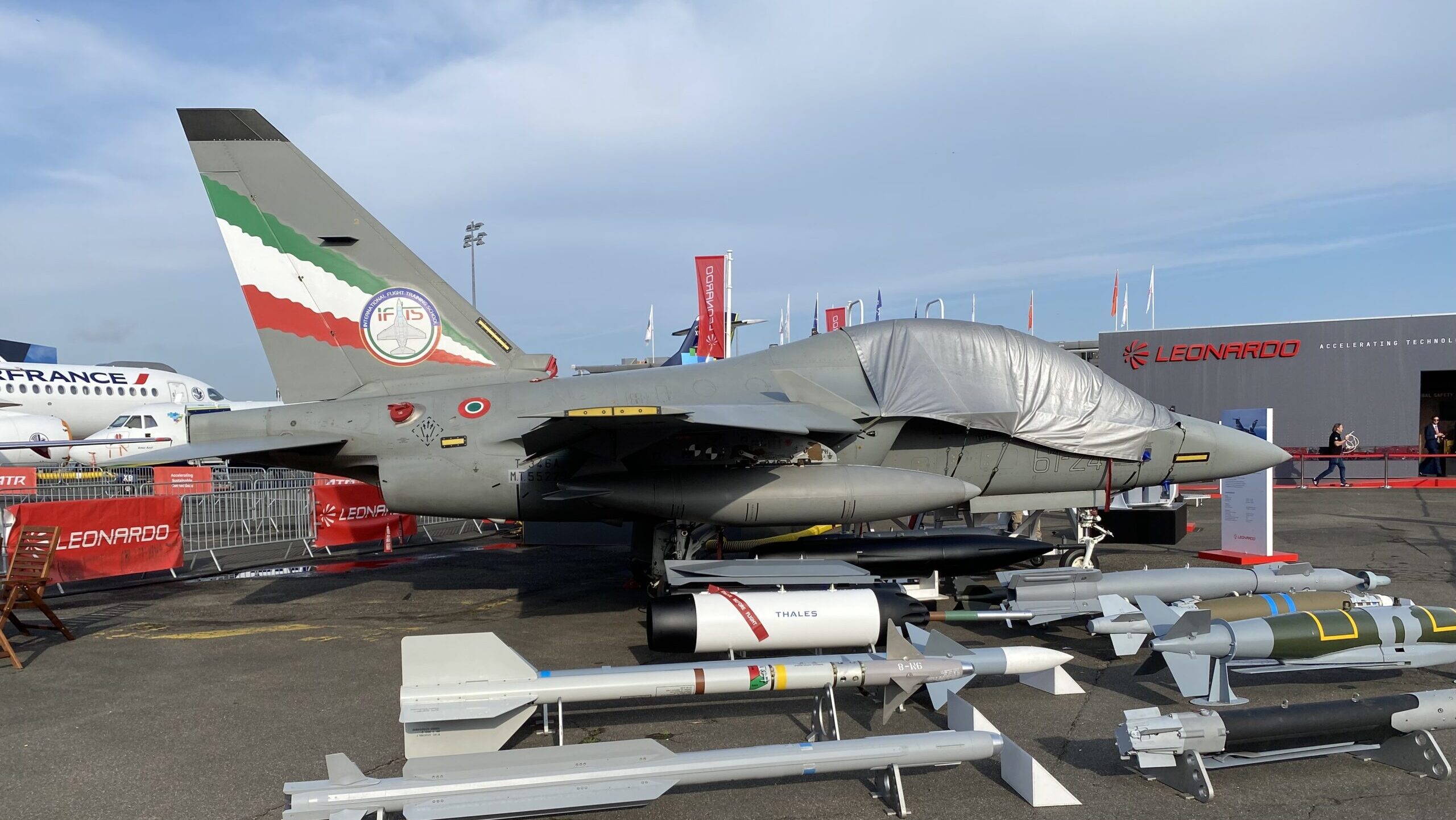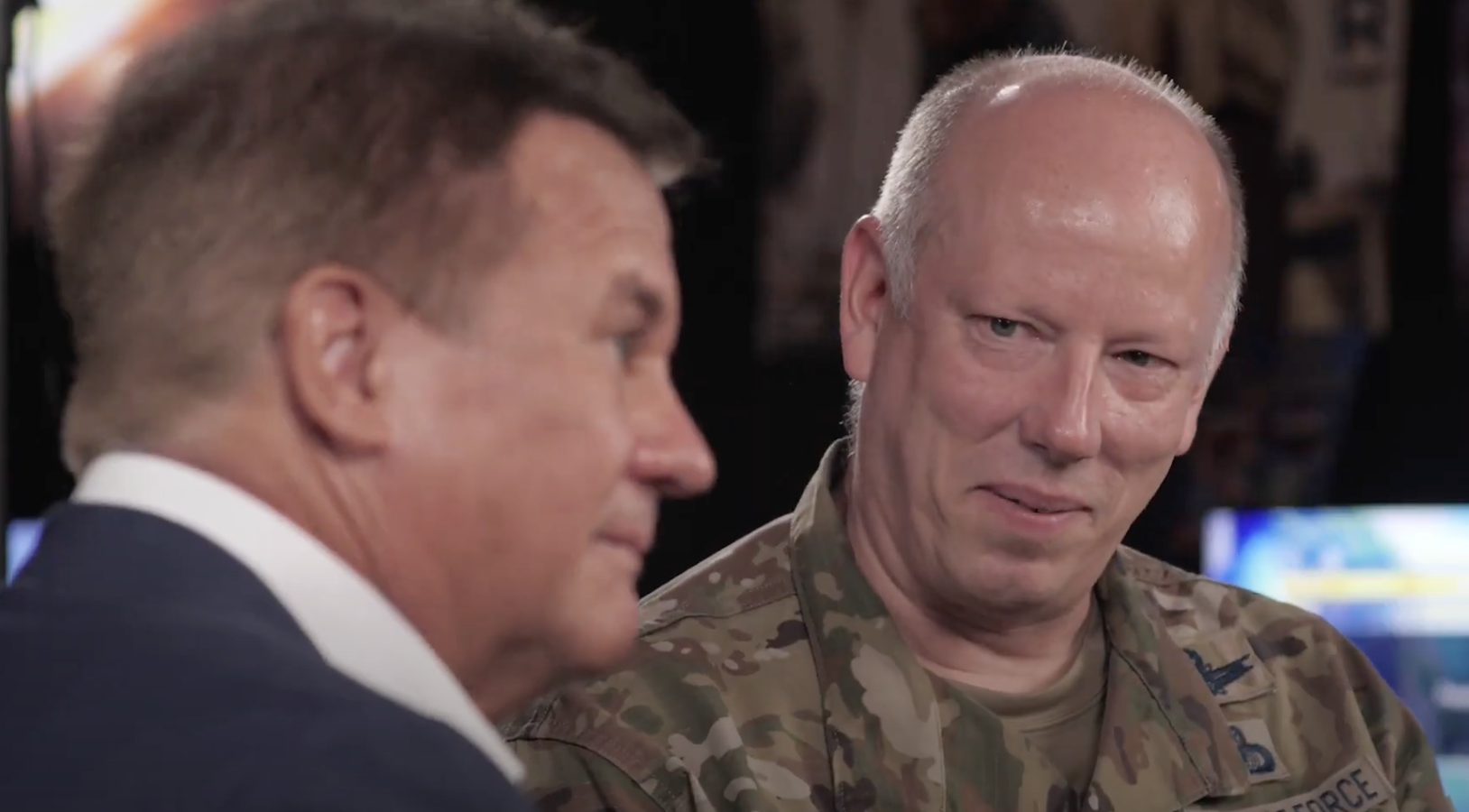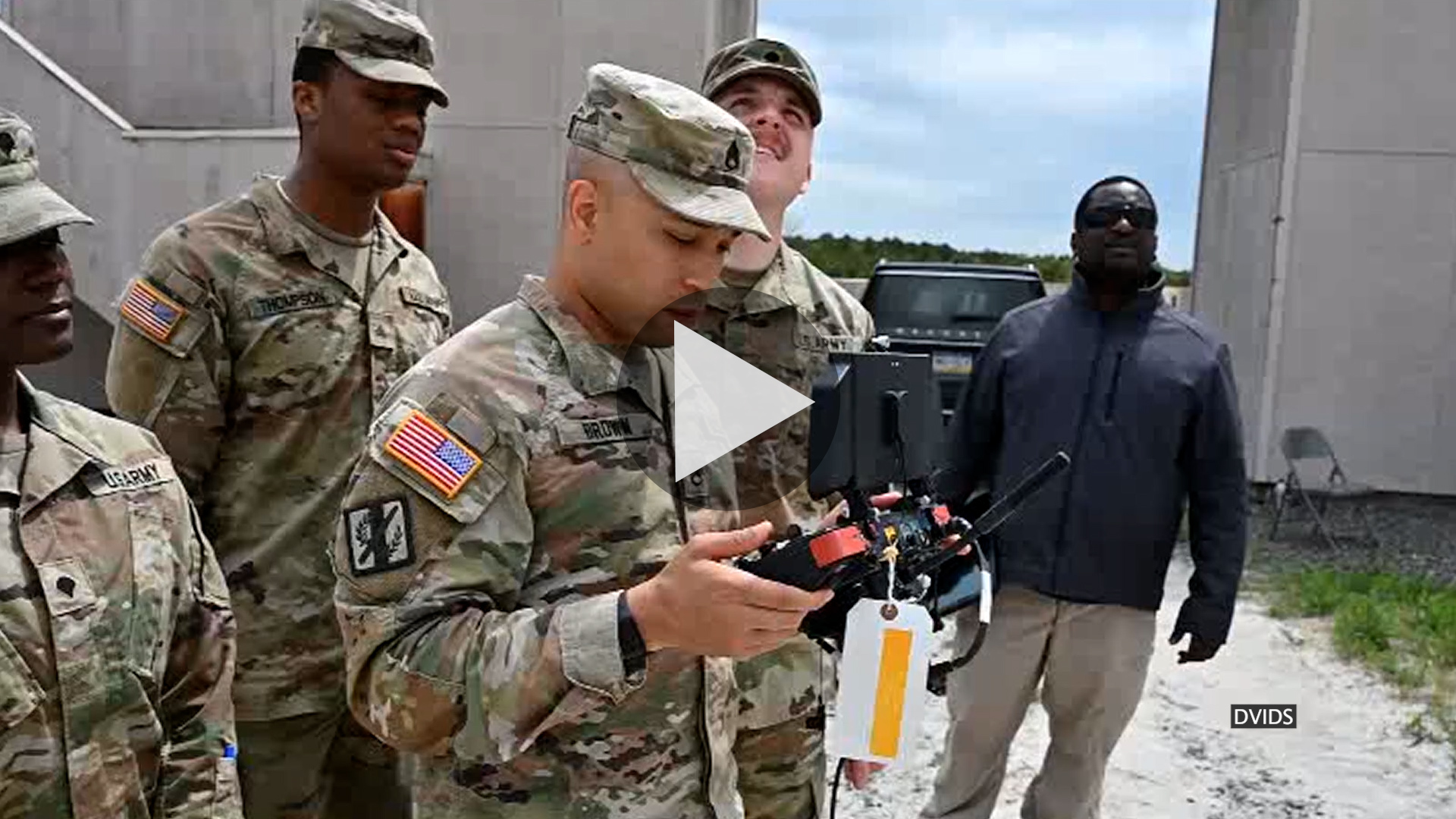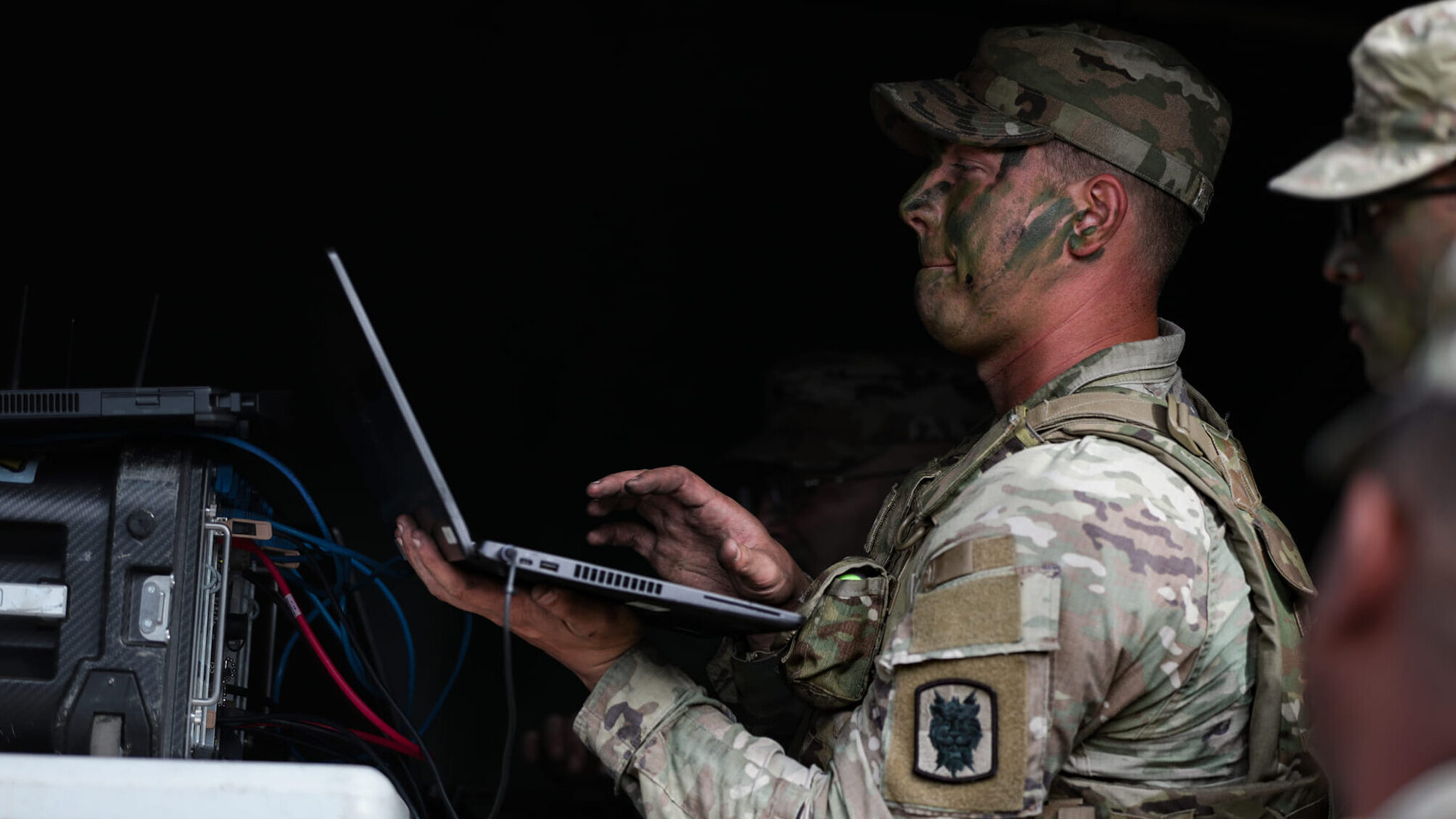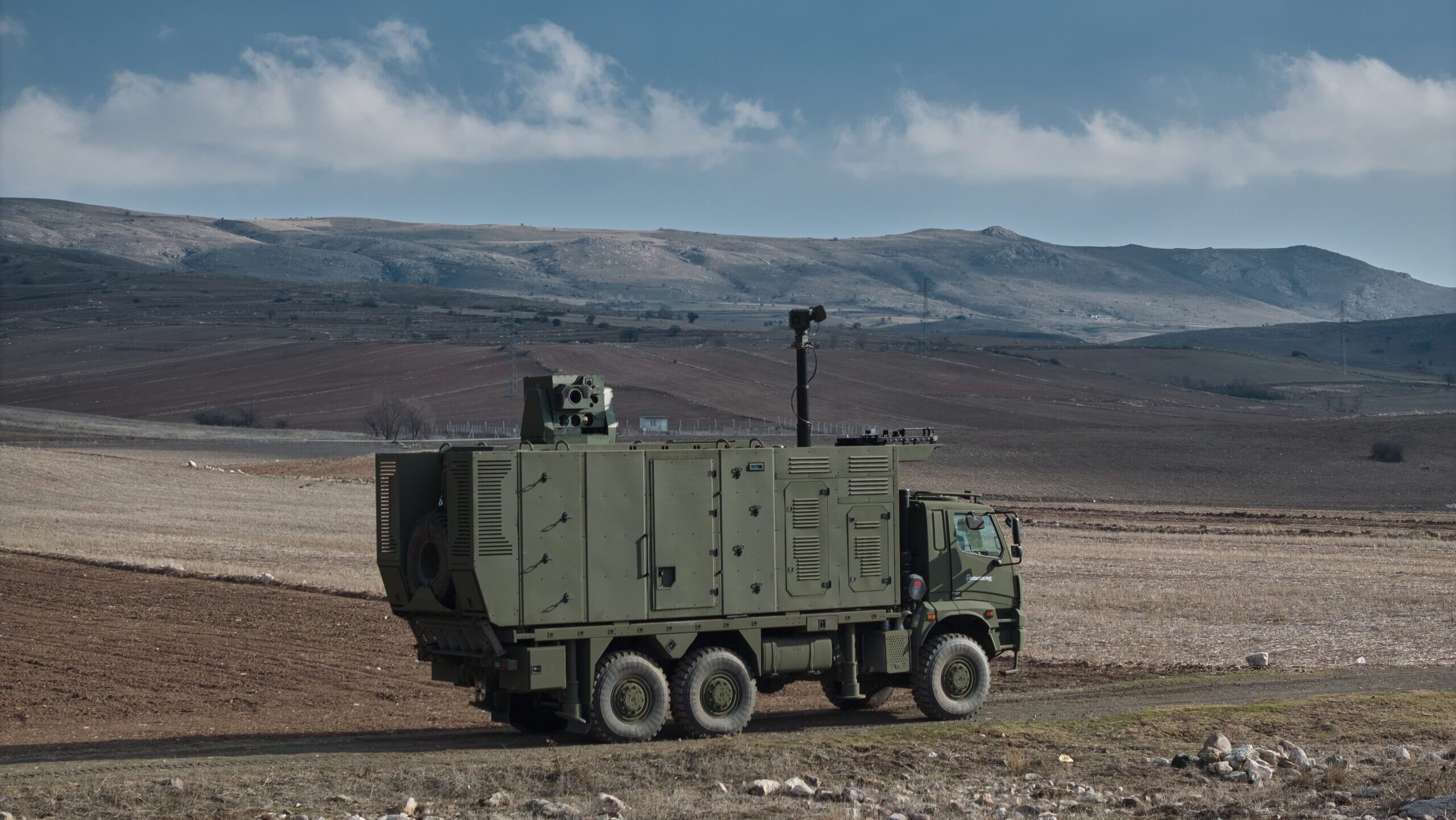The Airbus full scale Wingman model was displayed for the first time at the ILA Berlin Air Show. (Photo: Breaking Defense)
BERLIN AIR SHOW — Airbus today gave an in-person look at its new, futuristic unmanned wingman concept aircraft, appearing as a full-sized model at the Berlin Air Show here, as the firm announced a new teaming agreement with German artificial intelligence startup Helsing to work towards adding AI capabilities on the eventual airframe.
The new aircraft, simply dubbed Wingman, is designed to meet emerging operational requirements of the German Air Force. The platform is earmarked to work alongside manned combat jets like the Eurofighter Typhoon, teaming with them to deliver increased capability and air superiority over adversaries, Airbus said. The company has also stressed that a manned fighter jet pilot will instruct the Wingman, observing human-in-the-loop protocol.
When Breaking Defense visited the Airbus display today, German Chancellor Olaf Scholz was checking out the theoretical aircraft.
German Chancellor Olaf Scholz (center) meets Airbus officials, including Airbus Defence and Space CEO Michael Schoellhorn (immediately to Sholz’s left) and Airbus head of air power Jean-Brice Dumont (far right), to talk about the future Wingman. (Breaking Defense)
Under the terms of the co-operation agreement, the manufacturer intends on providing “its expertise in the interaction of unmanned and manned military aircraft,” while Helsing will “contribute its AI stack of relevant software-defined mission capabilities, including the fusion of various sensors and algorithms for electronic warfare,” according to a joint statement.
Airbus first announced the Wingman concept online on Monday and noted that it is envisaged to deliver multirole tasks including reconnaissance, jamming targets or strike missions against ground and airborne targets by deploying precision guided weapons or missiles — operations that may be too dangerous to send a human pilot.
Michael Schoellhorn, Airbus CEO, said that the German Air Force had “expressed a clear need” for an unmanned aircraft that could operate with fighter jets ahead of the multinational Future Combat Air System (FCAS) entering service in 2040.
Airbus will be presenting its new Wingman concept at the International Aerospace Exhibition #ILA24 in Berlin. This fighter-type drone will be commanded by a pilot in a current combat aircraft such as the #Eurofighter and can take on high-risk mission tasks that would pose a… pic.twitter.com/ObXydUj3ZC
— Airbus Defence (@AirbusDefence) June 3, 2024
He told Breaking Defense and other reporters today that Airbus is targeting an estimated cost for the Wingman equivalent to “one-third” of a manned fighter platform.
The model displayed, designed with a tailless configuration and internal weapons has “a lot of high-definition requirements, payload capability and it will be [offered] at a price that makes it exquisite but competitive,” he added.
Airbus has cautioned that the current design is subject to change, but Schoellhorn said that a modular approach will be prioritized initially.
“It will be modular to a degree because we are at an early phase of the project and whether or not we will have a specialization later on or not remains to be seen,” he added.
The project has so far been self-funded by the manufacturer, courtesy of a “double digit” investment, said Schoellhorn.
“Everything that we have done over the last 20 years” involving new military aircraft designs, “has found its influx into” the Wingman, according to the Airbus leader.
In terms of a potential contract with the German Air Force, he said, “let’s leave it open” for the moment, but that the target for the program over the rest of the year is to mature the Wingman’s design, “such that we are in a position to then contractualize it….I think it has to be operative in the 2030s.”
Helsing is one of Europe’s leading military AI startups.
On Monday it announced a “large scale” program dubbed Project Centaur, aimed at developing “autonomous air combat capabilities for existing platforms and future systems such as Loyal Wingman, FCAS, GCAP [Global Combat Air Programme] and other advanced air combat programmes across Europe.”
RELATED: FCAS? SCAF? Temptest? Explaining Europe’s sixth-gen fighter efforts
Hinting at Project Centaur’s inner workings, the startup added that autonomous “reinforcement learning and foundation models for unprecedented performance and collaborative abilities” will be included.
Last year Helsing rose to prominence by securing key contracts for the AI ‘backbone’ of FCAS and delivery of a new AI-enabled electronic warfare platform, tied to Saab’s three-year deal to integrate Arexis modular electronic warfare (EW) sensor equipment on German Eurofighter EK (Electronic Combat) fighter jets.
In September 2023, it also raised €209 million ($227 million) during a Series B investor funding round, led by US venture capital group General Catalyst and reportedly drawing a €75 million ($82 million) investment from Saab for a five percent stake. Helsing said at the time that the new funding would go toward business growth in France, Germany and the United Kingdom.


